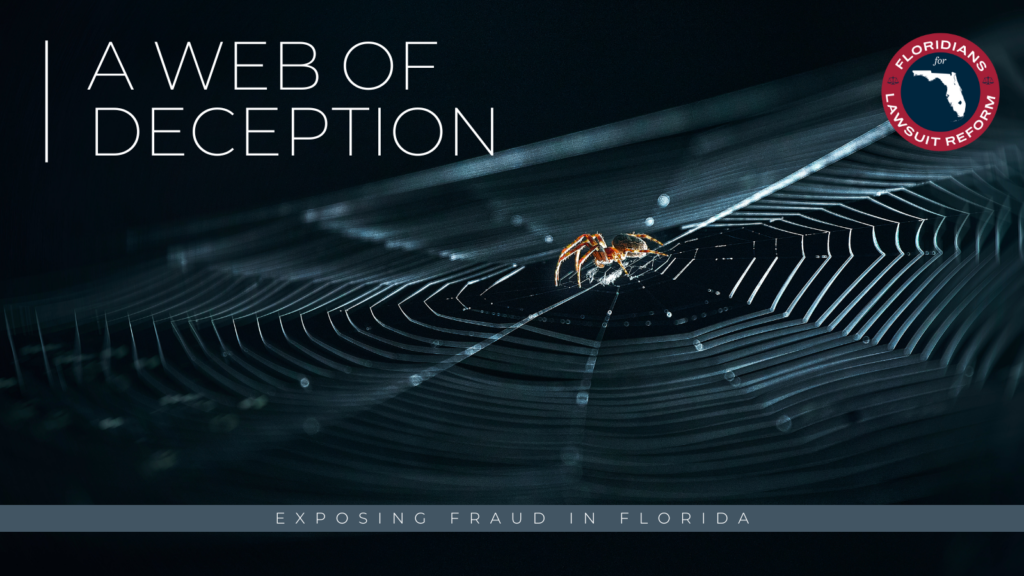
The day after Hurricane Milton sliced through Southwest Florida, a neighbor in Manatee County posted on Facebook that her brother-in-law was doing free roof inspections. Under normal circumstances, I’d peruse a company’s reviews and check it out on the Better Business Bureau’s website first. But there’s nothing normal about the sleepless haze that follows being hit by a Category 3 hurricane.
The storm had blown a couple dozen shingles off my roof, and I worried about when it might rain again. Adding to my anxiety was the fact that the roofing companies I had vetted hadn’t called me back yet. I needed my roof fixed fast, so I asked the guy from Facebook to come take a look.
The young man who showed up came equipped with a telescoping ladder and a drone. He spent all of five minutes examining my roof before telling me it was severely damaged and I’d need a new one, which would cost about $31,000. The good news, he said, was that my property insurance carrier would likely foot the bill, not including my deductible. And if the insurance company balked, he’d set me up with his preferred public adjuster who had a “100% success rate” of getting insurance companies to pay for new roofs.
I was gobsmacked. My house was less than a year old. Didn’t matter, he said. Probably wasn’t constructed right. Couldn’t it just be repaired, I asked? Nope. Shingles, he said, are like dominos — and when one is damaged or missing, the ones around it are likely compromised too. If I opted for a repair, he warned, the next big storm would probably shred my roof to bits.
Weeks later, I shudder at the thought that I almost fell for this malarkey.
In recent years, roofing schemes have contributed to Florida’s property insurance woes. It’s not uncommon — as I learned — for an unscrupulous roofer to exaggerate the extent of damage to justify the need for a total roof replacement.
The Florida Legislature took a big bite out of roofing fraud in December 2023 when it eliminated assignment-of-benefit (AOB) contracts, whereby policyholders who’ve suffered a loss can assign contractors the right to handle and collect on their claims.
In a perfect world, AOBs can save consumers time and hassle and provide contractors with the assurance that the homeowner won’t run off with an insurance payout and stiff them for their services. But over the last two decades, AOBs had run amok. Unscrupulous contractors abused the process, submitting inflated bills to insurers and suing them when they denied the claims. The Insurance Information Institute (Triple-I) says AOB lawsuits in Florida skyrocketed from about 1,300 in 2000 to nearly 135,000 during the first nine months of 2018. Many carriers would settle cases without a fight to avoid legal costs.
Mark Friedlander, Triple I’s director of corporate communications, says those “manmade” factors took a heavy financial toll on the industry. From 2019 to 2021 — three years during which no hurricanes made landfall in Florida — the industry posted average underwriting losses of more than $1 billion each year, and insurance premiums climbed to nearly twice the national average.
But after state lawmakers clamped down on AOBs, ended statutory attorney fees and beefed up reinsurance capacity to stabilize the market, Friedlander sees signs of progress. The average rate filing increase in 2024 was less than 2%, he notes, and more than 40 companies filed for no rate increases, or proposed decreases.
Staying one step ahead of predatory contractors, though, will require continued vigilance. Florida Chief Financial Officer Jimmy Patronis says that after the state did away with AOBs, some contractors started asking policyholders to sign contracts with “direction-to-pay” provisions that allow them to bill the insurance company directly for restoration work. And if insurers don’t pay them, it leaves consumers on the hook for the repairs and vulnerable to a lien.
To assist storm victims, the Department of Financial Services launched a “Check My Contract” portal after Milton through which homeowners can have contracts reviewed for potential fraud. “We’re going to get all these contracts … and then we’re creating a case. I’ve been talking to legislators already — we’re going to create a case to close these loopholes,” Patronis told me.
Likewise, if a homeowner’s insurance company is giving them the runaround on a claim, the CFO welcomes a call. “Our office will beat up on the insurance company and make sure they make their payments,” he says.
At the end of the day, I found an honest contractor who charged me less than $1,000 to repair my roof — and Patronis tells me I was fortunate. “If you would have engaged in this thing, you definitely could have been involved in a fraud investigation. That’s why I tell people, don’t sign anything. Contact your insurance company. … If you go and sign up with these unscrupulous players, you’re limiting what we can do.”
— Amy Keller, Executive Editor akeller@floridatrend.com
